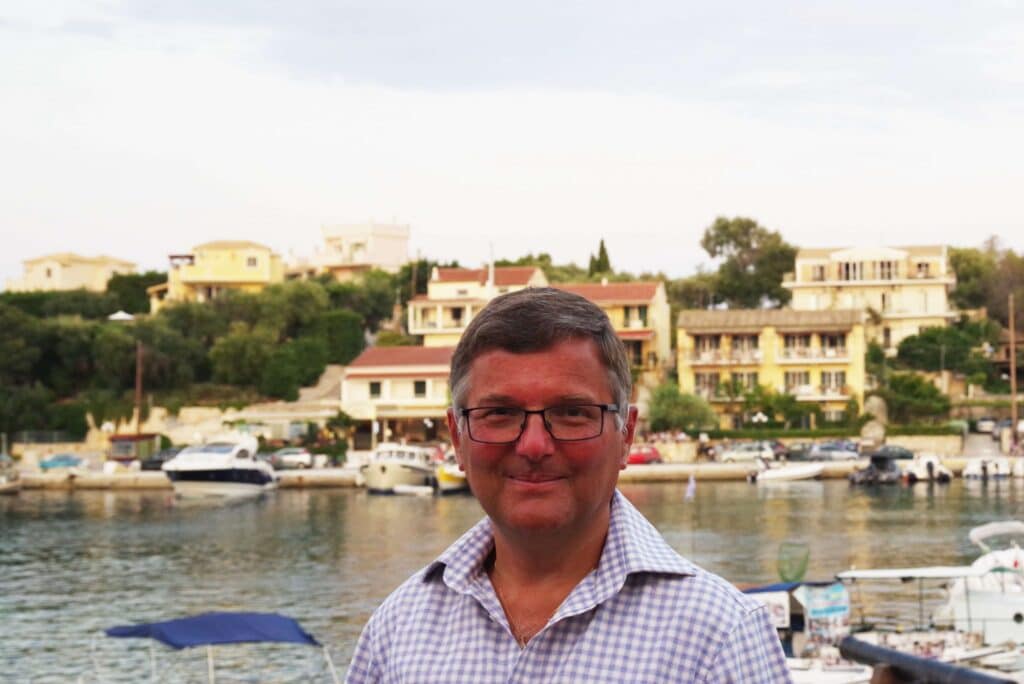Q&A on ‘late effects’ with Professor Rod Skinner
Find out what ‘late effects’ actually are for children and young people who have survived cancer in this Q&A with Professor Rod Skinner.

To find out more about late effects, also known as long-term side effects and how research and treatment in this area have evolved, we had a chat with Professor Rod Skinner.
Professor Rod Skinner was appointed a Consultant in Paediatric Oncology and Bone Marrow Transplantation in Newcastle in 1995. He’s always been passionate about improving survivorship care, and while he semi-retired recently, he is now working exclusively in long-term follow-up and survivorship. He still leads the long-term follow-up clinical service in Newcastle.
Q: What is meant by the term ‘late effects’?
A: Late effects are chronic side effects of the cancer, or more commonly of the treatments for the cancer, and may lead to important chronic health problems.
Q: Why do late effects occur?
A: Late effects are usually due to the treatment given for the cancer, for example side effects of chemotherapy or radiotherapy. Sometimes they may be due to damage caused by the cancer, for example by brain tumours.
Q: How are late effects in childhood cancer survivors monitored and managed?
A: Late effects are monitored by clinical assessment at follow-up clinics, sometimes with monitoring by surveillance tests, for example, blood tests, heart scans (echocardiograms). They are often managed by multidisciplinary team-working with specialist colleagues from different areas, like endocrinologists (hormone specialists).

Q: What has been the biggest change in the long-term follow up of childhood cancer survivors within your career?
A: The introduction of formalized long-term follow-up services which provide care through clinics guided by multidisciplinary team meetings (MDT’s). This has led to much greater recognition of the potential impact of late effects for individual survivors and the importance of minimizing late effects as much as possible to improve future health and quality of life for all survivors.
Q: What do you think are the biggest research priorities to reduce late effects?
A: Improving our ability to accurately predict which patients are at high risk of particular late effects. This prediction may be based on information such as the patient’s age, the type of treatment received and the dose.
For some late effects, information about genetic factors may be important for individual patients. If we can accurately predict the patient’s risk of late effects, it’s easier to consider what steps can be taken to minimize them, detect them earlier and as such treat them more effectively.
Q: Why is research into late effects important? How can research results be applied in the long-term care of childhood cancer survivors?
A: Now that we can cure over 80% of children and young people diagnosed with cancer, there is increasing emphasis on improving the quality of life after treatment. We can use the evidence from research to determine what long-term follow-up is necessary and to improve how long-term follow-up care is actually delivered.
Q: What has been your biggest career highlight?
A: Being one of the three cofounders (in 2008) of PanCare, the Pan-European Network for Care of Survivors after Childhood and Adolescent Cancer. This is the leading European society dedicated to improving care for survivors of childhood cancer.
PanCare is a very friendly and inclusive society which has already achieved a great deal through its research and its advocacy for survivors. Anyone interested in late effects and survivorship care can join, including survivors and their families.
Now that we can cure over 80% of children and young people diagnosed with cancer, there is increasing emphasis on improving the quality of life after treatment.
Q: As a child, what did you want to be when you grew up?
A: I wanted to be a train driver (like my grandfather) for a couple of years until I needed to go see a doctor about my ears in hospital. Years later, my mother told me that on that day, the doctor asked what I wanted to be when I grew up and I said a doctor. I’d never said it before but I never changed my mind after that day.
Q: What inspired you to become a paediatric and adolescent oncologist?
A: I decided I wanted to be a paediatrician after my clinical student attachment at Birmingham Children’s Hospital in 1981. I saw some children being treated for leukaemia then and thought that I’d like to work in that field, but never imagined that I would actually have the opportunity to do so. I feel extremely privileged to have helped treat so many children and then to help to improve their long-term follow-up.
Q: What message do you have for children who are currently undergoing treatment or have survived cancer?
A: Treatment is improving massively all the time thanks to the fantastic research which is being carried out all over the world, including a great deal in the UK. There is a large team of dedicated health professionals to help you and your family through the difficult time of diagnosis and treatment, and then your later follow-up after treatment has finished.
It is important to keep on looking after your general health as you recover since this will help you to be as healthy as possible in the future, and again, your doctors, nurses and other health carers will help you after your treatment is completed. So you will always have access to help and support.
When I grew up, I wanted to be a train driver like my grandfather.
Other stories
We have lots of information to help you learn more about childhood cancer. From specific cancer types, to treatments and causes.








